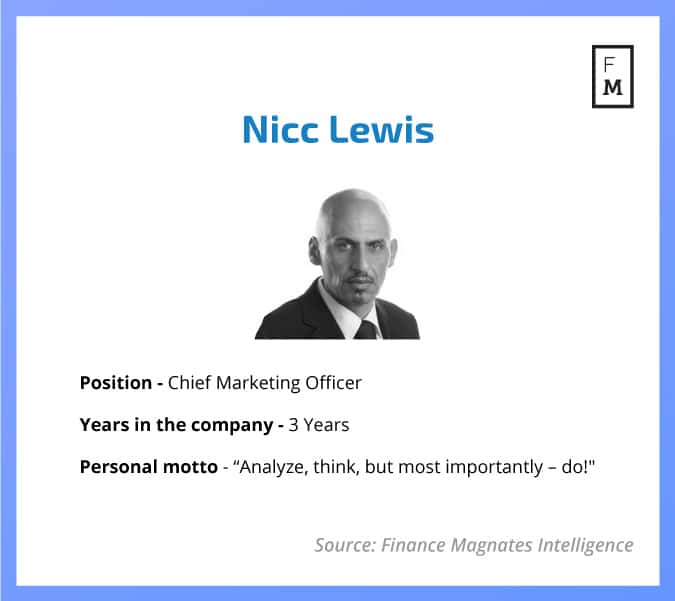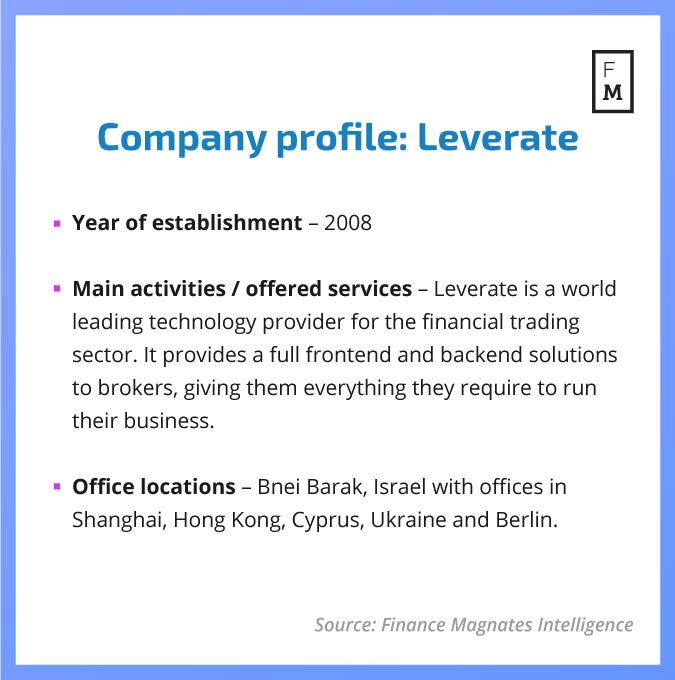Leverate is a well-known technology and online trading platforms provider. In an interview with Finance Magnates, Nicc Lewis, the company’s Chief Marketing Officer, gave his two cents regarding which marketing mediums are most effective when approaching clients, and which are things of the past. Additionally, Lewis spoke of binary options brokerages crossing over to Forex to draw in more clients, as well as expanding to include more local markets.
In terms of cost vs. value, which local market would you define as the most appealing for brokers in terms of marketing (acquisition costs, localization costs, ease of audience segmentation, etc.)?
There is no simple answer to the question. Firstly, each business should look at its strengths in terms of networks and capabilities. If you have a strength, such as a strong IB or affiliate and the language skills and offering, then this is the strongest market. It is possible that the jump to nearby regions can be exploited by the same skill sets and partners. An example could be Germany – if you have German capabilities and networks the jump to Austria and Switzerland may be relatively easy. However, if you are strong in Italy, the move to German speaking countries will be much harder. In terms of expansion, market price for acquisition is usually equitable. The UK has a strong and large market but is by far the most expensive to acquire. You will also need to adjust your offering to suit local trading methods. In general, EU countries are competitive and expensive, which is why many businesses are looking east.

Many binary options firms are now targeting forex traders. What advice would you give them from the marketing side? How do the audiences differ?
First, have a full forex solution in place. Offering limited trading options without full Trading Platform functionality, like advanced charting for example, will not appeal to traders. Forex traders invest more overall but over a longer period of time. Binary options tend to have a high turnover, making conversion the main focus of sales. In order to extract maximum user value, the first mind switch is to think about retention over a longer period of time. The days of big bonuses and huge leverage seem to be numbered. Traders are looking for good trading terms and a variety of instruments (especially local instruments in Eastern markets). They are also looking for trust. They understand that lower leverage tends to mean a cleaner business – even if they do not understand what A-book and B-book are. They are also looking for brands they can trust. Processing fast withdrawals is key. If your retention teams and risk managers are working well then you will achieve user value. The best advice I can offer binary brokers moving to forex is simple: choose a good tech provider and hire an excellent chief dealer.
How will the growing use of AI and other automation technologies in the marketing and retention sectors influence the marketing industry?
Automation is part of everyday business already. Most brokers already employ automated risk exposure, some already use automated KYC. In terms of marketing we need to break down the elements of the funnel – acquisition, conversion and retention. Looking at acquisition first, programmatic digital advertising is already being adopted. There are also many services that offer automated optimization of AdWords. The key is to target a potential new user at the right time, on the right channel with the right messaging. This initial messaging then needs to be carried over to the conversion process. For most brokers, fully automated conversion is not really conceivable as customers usually need to hear a human voice before making large deposits for the first time. However, traditional cold calling and calling clients from contact forms is costly in terms of time and resources and ‘hit and miss’

Essentially some interest has been shown but the agent has no idea of where the potential customer is when they call and are relatively blind to what triggers the customer has already shown interest in. Automation allows a much less intrusive path of discovery and puts an agent in front of a potential client at the key decision-making point, making the sale more natural, better informed and with a higher likelihood of success. This enables brokers to have further reach with higher volumes of traffic with relatively fewer resources and higher conversion. Automated retention also reduces dependency on human resources. Happy customers can be automatically prompted to action with intervention needed only at critical points which the system understands, alerting agents automatically and in real time.
A recent survey showed that more than half of the online users in the US, UK, Brazil and China are using ad blockers. Given this rapidly growing trend, is it safe to say that banners are history? If so, what is the next solution for online marketing?
It is very much my own opinion, but banner advertising was already passé as a primary acquisition channel. Other than ad blockers, many users see banners as annoying at best. However, I am not saying this is not part of a full arsenal of tools. Deals on banner advertising should be performance based. It is safe to say that paying for impressions should be history. Most channels should work on CPC and if possible, a deal should be done on CPA. This means that even if fewer and fewer people are seeing the banners, you will just pay less. For many years I have been advocating a more holistic view to marketing. As a generation of internet users and e-commerce consumers, we all go through a process of discovery before buying. We search, learn and compare. If we think in these terms, content marketing, native advertising, social media and even keyword bidding are far more important than ever before.


















